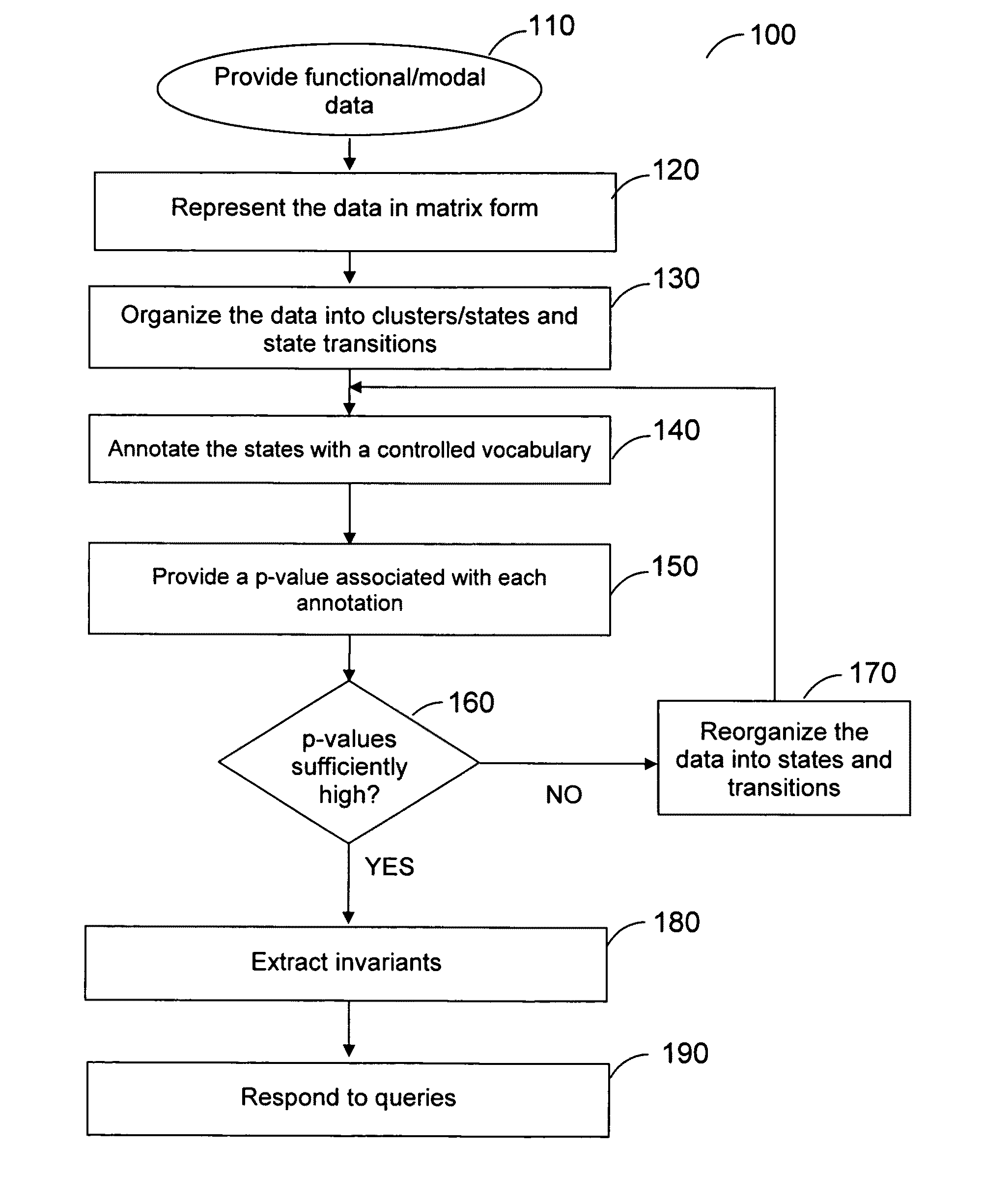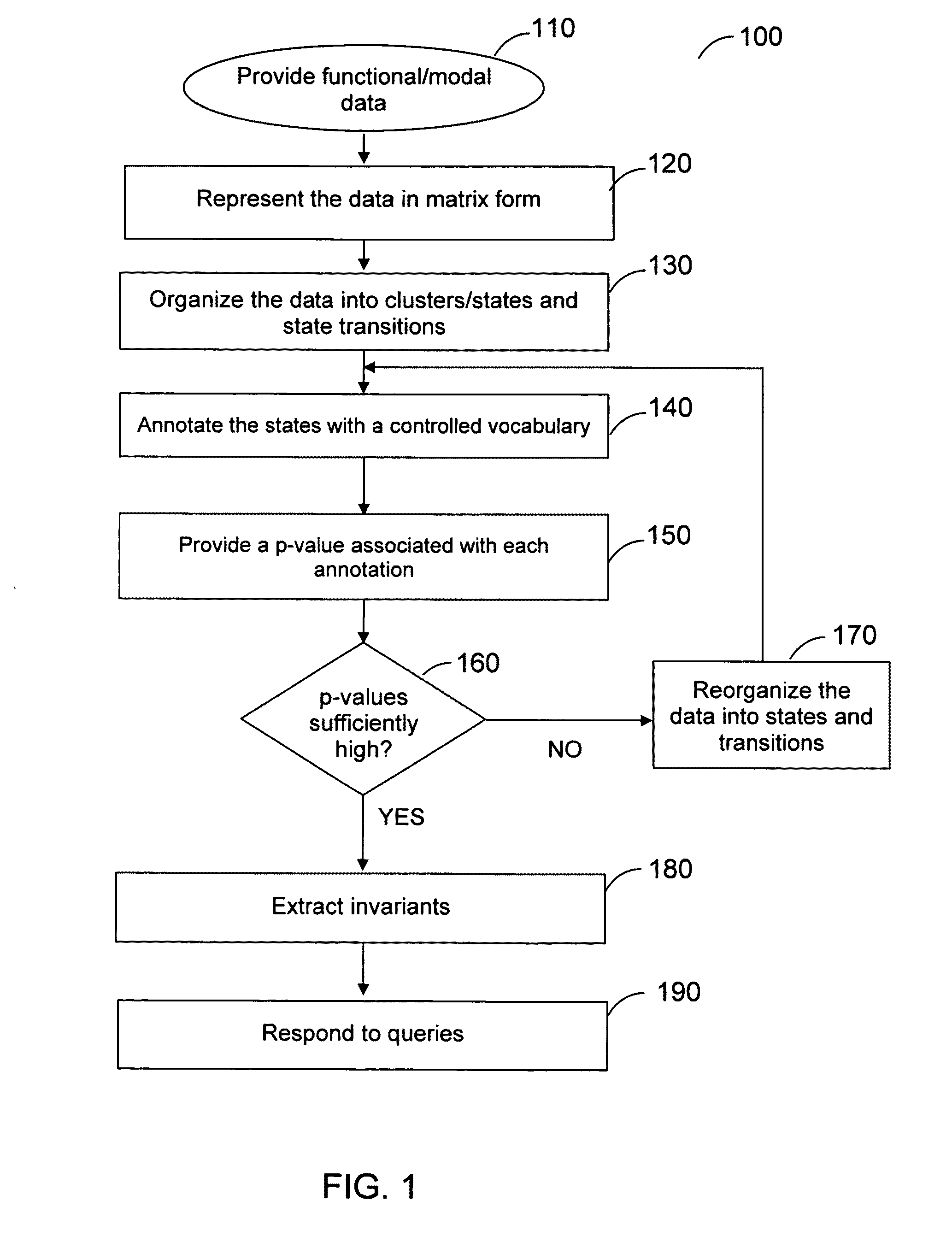Method, system and software arrangement for reconstructing formal descriptive models of processes from functional/modal data using suitable ontology
a formal descriptive model and ontology technology, applied in the field of system and software arrangement for reconstructing formal descriptive models of processes from functional/modal data using suitable ontology, can solve the problems of inadvertent discarding of inability to provide global and/or dynamic perspectives that can be collectively inferred from a set of data, and inability to provide additional information in the full data s
- Summary
- Abstract
- Description
- Claims
- Application Information
AI Technical Summary
Benefits of technology
Problems solved by technology
Method used
Image
Examples
example
[0052]Certain exemplary embodiments of the method, system and software arrangement according to the present invention have been used to analyze a yeast cell cycle data set described in Spellman et al., (see Spellman, P., et al., Comprehensive Identification of Cell Cycle Regulated Genes of the Yeast Saccharomyces Cerevisiae by Microarray Hybridization, Molecular Biology of the Cell, 9(12), pp. 3273-3297, December (1998)). Analysis of this exemplary data using an exemplary embodiment of the present description is described in Ramakrishnan et al., Reconstructing Formal Temporal Models of Cellular Events using the GO Process Ontology, Bio-Ontologies SIG Meeting, ISMB 2005, Detroit, U.S.A. (2005).
[0053]For example, the data set includes several time course microarray measurements of gene expression levels under a number of cell synchronization treatments (e.g., α-factor, Cdc15, and elutriation treatments). An analysis was performed on a data set prepared from the α-factor time course da...
PUM
 Login to View More
Login to View More Abstract
Description
Claims
Application Information
 Login to View More
Login to View More - R&D
- Intellectual Property
- Life Sciences
- Materials
- Tech Scout
- Unparalleled Data Quality
- Higher Quality Content
- 60% Fewer Hallucinations
Browse by: Latest US Patents, China's latest patents, Technical Efficacy Thesaurus, Application Domain, Technology Topic, Popular Technical Reports.
© 2025 PatSnap. All rights reserved.Legal|Privacy policy|Modern Slavery Act Transparency Statement|Sitemap|About US| Contact US: help@patsnap.com



